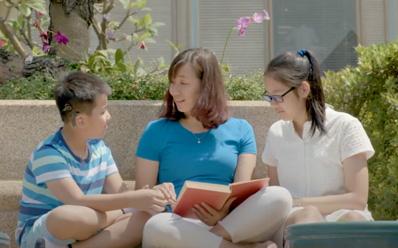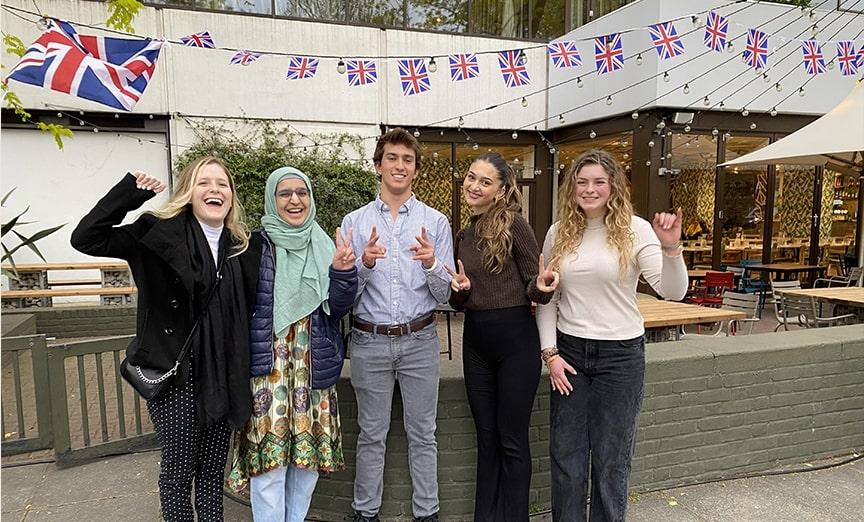Supporting the Shepherd Centre
When detected early and treated, children with hearing loss have a better chance of learning to listen, speak, and communicate effectively, thus improving their ability to thrive in mainstream education and reach their full potential1,2. Early treatment of hearing loss can help a child’s development stay on par with their hearing peers, offering them more opportunities to excel in life1,2.
Based in Australia, The Shepherd Centre gives children with hearing loss the tools they need to listen, speak and communicate at the same level as their peers who have typical hearing.
Cochlear Foundation funding contributed towards The Shepherd Centre’s Research program, which identifies methods for improving treatment and care for the hearing loss community.
Recently, these efforts have focused on delivering research programs to further understanding of hearing loss and treatment outcomes, as well as implementing online treatment resources that aim to help children with hearing loss speak, communicate and learn effectively.
How a local approach benefits the global community
At the heart of The Shepherd Centre are the ground-breaking clinical tools, resources and education programs they’ve developed for professionals and families across Australia. Their early intervention program is world-renowned for its results – more than 90 per cent of children who graduate from their program attend mainstream school with listening and spoken language skills on par with those of their hearing peers.3
To help children with hearing loss in rural and remote locations who live too far away to attend in-person treatment, The Shepherd Centre developed online services. Seeing the impressive results through their online platform in Australia, they then looked at ways to help children and their families internationally. As a result, they developed HearHub, a world-first online platform that can deliver their services to children worldwide.

Never losing focus on the role and reach of research
Beyond providing children and their families with access to world-leading clinical support this service delivers a rich source of data for the Shepherd Centre’s ongoing research. Using this information, they plan on reviewing and identifying new frontiers, including analysing the effectiveness of different hearing technologies and therapies, improving social skills in toddlers, and measuring the effectiveness of online delivery of their services.
Results
Since Cochlear Foundation first provided funding in 2014, the Shepherd Centre has seen enrolments jump from 450 families in 2017 to 729 families as of May 2020. Their ongoing research and service offering has led to dramatically improved results for children who receive early intervention, showing they perform better on measures such as social cognition than they did ten years ago4.
1. Ching TYC and Dillon H. Major Findings of the LOCHI study on children at 3 years of age and implications for audiological management. Int J Audiol. (2013 Dec);
2. Ching TYC, Dillon H, Button L, Seeto M, Van Buynder P, Marnane V, Cupples L, Leigh G. Age at Intervention for Permanent Hearing Loss and 5-Year Language Outcomes. Pediatrics. (2017 Sep);
3. The Shepherd Centre. 2021. Support Us | Hearing Services | The Shepherd Centre. [online] Available at: <https://shepherdcentre.org.au/support-us/> [Accessed 12 April 2021].
4. The Shepherd Centre. 2021. Annual Report | The Shepherd Centre. [online] Available at: <https://shepherdcentre.org.au/about-us/governance/annual-report/> [Accessed 15 April 2021].
Learn more about the programs we support

In Australia
The Shepherd Centre
Supporting a research program, which identifies methods for improving treatment and care for the hearing loss community.

Helped develop a multi-year auditory-verbal therapy and paediatric audiology training program in Vietnam to help more of Vietnam’s young children with hearing loss develop listening and speaking skills.

Across the world
Achieve anything program
A special awareness-raising program to address the importance for children and young people having equal access to a quality education, as well as hearing healthcare and support.
